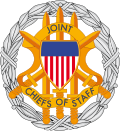The President of the United States of America, authorized by Act of Congress March 3rd, 1863, has awarded in the name of Congress the Medal of Honor to Captain Paris D. Davis, United States Army, for conspicuous gallantry and intrepidity at the risk of his own life above and beyond the call of duty. Captain Paris D. Davis, Commander, Detachment A-321, 5th Special Forces Group (Airborne), 1st Special Forces, distinguished himself by acts of gallantry and intrepidity above and beyond the call of duty while serving as an advisor to the 883rd Regional Force Company, Army of the Republic of Vietnam, during combat operations against an armed enemy in the vicinity of Bồng Sơn, Republic of Vietnam on June 17th through 18th, 1965.
Captain Davis and three other U.S. Special Forces advisors accompanied the Vietnamese 883rd Regional Force Company on its first combat mission, a daring nighttime raid against a Viet Cong regional headquarters housing a superior enemy force.
Captain Davis’s advice and leadership allowed the company to gain the tactical advantage, allowing it to surprise the unsuspecting enemy force and kill approximately 100 enemy soldiers. While returning from the successful raid, the regional force company was ambushed and sustained several casualties.
Captain Davis consistently exposed himself to the hostile armed — small arms fire to rally the inexperienced and disorganized company. He expertly directed both artillery and small arms fire, enabling other elements of the company to reach his position.
Although wounded in the leg, he aided in the evacuation of other wounded men in his unit, but refused medical evacuation himself. Following the arrival of air support, Captain Davis directed artillery fire within 30 meters of his own position in an attempt to halt the enemy’s advance.
Then, with complete disregard for his own life, he braved intense enemy fire to cross an open field to rescue his seriously wounded and immobilized team sergeant. While carrying the sergeant up the hill to a position of relative safety, Captain Davis was again wounded by enemy fire.
Despite two painful wounds, Captain Davis again refused medical evacuation, remained with the troops, fought bravely, and provided pivotal leadership and inspiration to the regional force company as they repelled several Viet Cong assaults on their position over a period of several hours.
When friendly reinforcements finally arrived, Captain Davis again refused medical evacuation until he had recovered a U.S. advisor under his command who had been wounded during the initial ambush and presumed dead.
While personally recovering the wounded soldier, he found him severely wounded but still clinging to life. Captain Davis directed the helicopter extraction of his wounded colleague not leaving the battlefield himself until after all friendly forces were recovered or medically evacuated.
Captain Davis’s heroism and selflessness above and beyond the call of duty, at the risk of his own life, are in keeping with the highest traditions of military service and reflect great credit upon himself, his unit, and the United States Army. [18]










